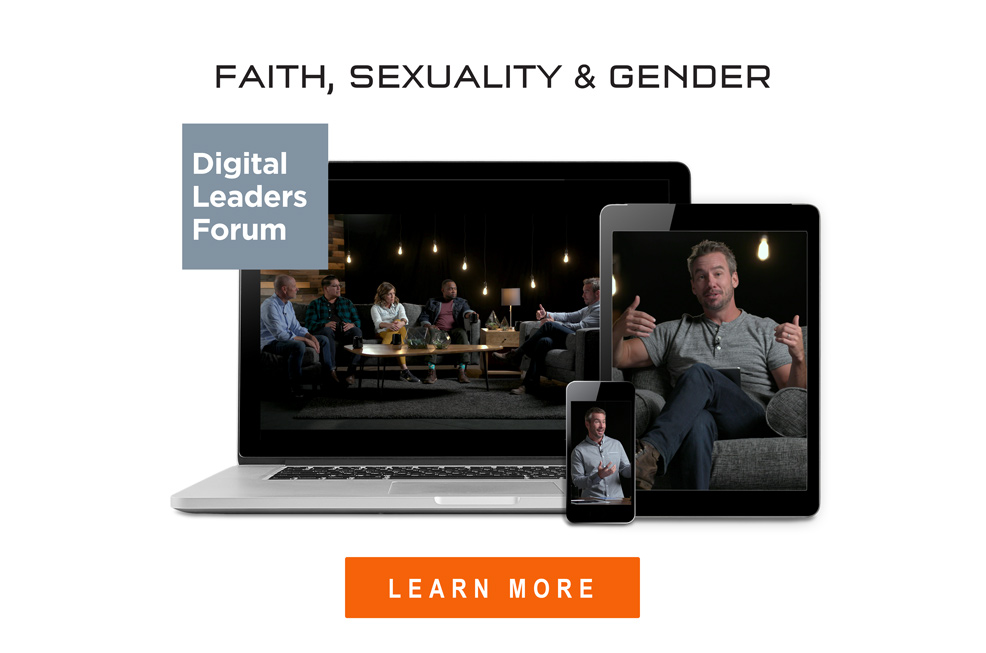
Youth With A Mission (YWAM) is a large Christian missionary organization that has recently released some statements that reaffirm their commitment to the historically Christian view of marriage and sexual ethics: “We uphold and celebrate the Biblical view that God’s intent for holy matrimony is between one man and one woman.” Or more fully:
We hold unswervingly to God’s original design for holy matrimony between one man and one woman as described in Genesis 2:23-24. All sexual activity (heterosexual or homosexual) outside of this God-ordained arrangement is sin.
Some critics of YWAM’s statements have framed things in terms of “inclusion.” For instance, one website posted an article titled: “YWAM & the Denial of LGBTQIA Inclusion.” Since I’m named in the article, I want to weigh in on how this way of framing the discussion is at best unhelpful, and at worst dehumanizing.
Let’s start with the IA of the LGBTQIA acronym.
Is YWAM really excluding Intersex and Asexual persons from serving in its organization? Asexuality refers to “the lack of sexual attraction to others, or low or absent interest in or desire for sexual activity,” which most likely means that Asexual people would be unlikely candidates for violating YWAM’s sexual ethic (e.g. engaging in sexual activity outside of marriage). Is there evidence that YWAM is excluding people who aren’t sexually attracted to anyone from serving?
The accusation that YWAM is excluding Intersex persons is equally strange. There are over 16 different conditions classified as Intersex. Most of these conditions demonstrate some minor variation in one’s sexual anatomy. For instance, females with the intersex condition called “Vaginal Agenesis” have XX chromosomes and no ambiguity in their biological sex, though the distant third of the vagina fails to develop. Males with Kleinfelder’s Syndrome have an extra X chromosome (XXY) and are often infertile and have smaller testicles. Some very rare intersex conditions present significant atypical features in one’s sexual sex and/or sex chromosomes (e.g. Congenital Adrenal Hyperplasia).
Is it really true that YWAM is excluding people with an Intersex condition from serving? If so, which Intersex condition? All of them? Some of them? Do we have evidence for this? Does YWAM check a person’s genitals or the depth of one’s vagina before they are allowed to serve? I don’t work for YWAM, so I can’t say one way or another. But it would be unhelpful to accuse an organization of excluding certain people if such exclusion isn’t actually happening. If such examinations are happening, then I have many other questions.
I also find the language of “not including LGBTQIA people” to be unhelpful and misleading—if not dehumanizing. Here’s why.
As I read YWAM’s statements, they’re not about “including” certain people while “excluding” others. The statements are about the marriage and sexual ethic that all people are being included into. YWAM is a Christian missionary organization that welcomes all Christians to come and serve, and since it is a Christian organization, it holds to a historically Christian view of marriage and sexual ethics. It’s not about including this person, while excluding that person. It’s about including all people into a Christian community that upholds a historically Christian definition of marriage and sexual ethics. All people are included; all people are called to the same standard.
Available now from The Center!
The most comprehensive course on faith, sexuality, and gender
Now, of course, what is really meant by “not including LGBTQIA people” is “not including LGBTQIA people…” who hold to a certain ideology—namely, that sex difference is not part of what marriage is, and that same-sex sexual relationships can be morally good. This is certainly one view of marriage and sexual ethics. And my point is not to critique that view (I have done so extensively elsewhere), but to point out that this is where the disagreement lies: different understandings of marriage and sexual ethics and not whether certain people are allowed to serve.
All Christian churches and organizations should be inclusive of all people. The disagreement lies in the marriage and sexual ethic that people are being included into.
LGBTQIA people are just that—people. A diverse group of beautiful people with varying beliefs, experiences, theological views, and perspectives on sexual ethics. To reduce such a diverse group of people to one particular ideology is to dehumanize those within that group who don’t hold to that ideology.
Sexual orientation is defined as an “an enduring pattern of romantic, emotional, and/or sexual attractions to persons of the opposite sex, same sex, or both sexes.” I haven’t seen anywhere in YWAM’s statements on sexual ethics that if someone simply experiences such “romantic, emotional, and/or sexual attractions” then they would not be “included.” Since, again, my name was brought up as someone whom YWAM consulted in these matters, I want to publicly say that I explicitly and thoroughly taught the YWAM leaders I spoke with not to exclude anyone for simply experiencing “an enduring pattern of romantic, emotional, and/or sexual attractions.”
Again, while YWAM doesn’t include certain views on marriage and sexual ethics as part of its values, it’s wrong to say they are not including certain people.
I want to lastly point out that the historically Christian view of marriage and sexual ethics affirmed by YWAM is also the view held by the overwhelming majority of Christians around the globe—which is important to keep in mind when we’re discussing the sexual ethics of a global, Christian organization.
Colonialism is dead. Or at least, it should be. Majority world churches don’t need Westerners to theologically colonize them once again with a very Western (and secular) view of marriage and sexual ethics. Or, as Dr. Jerry P. Kulah, Dean of Gharnga School of Theology in Liberia said at the recent UMC conference on sexuality:
[W]e Africans are not children in need of western enlightenment when it comes to the church’s sexual ethics. We do not need to hear a progressive U.S. bishop lecture us about our need to “grow up.”
I do wonder if trying to export a western sexual ethic onto majority world churches, or an organization that is intrinsically global, is colonialism 2.0.

